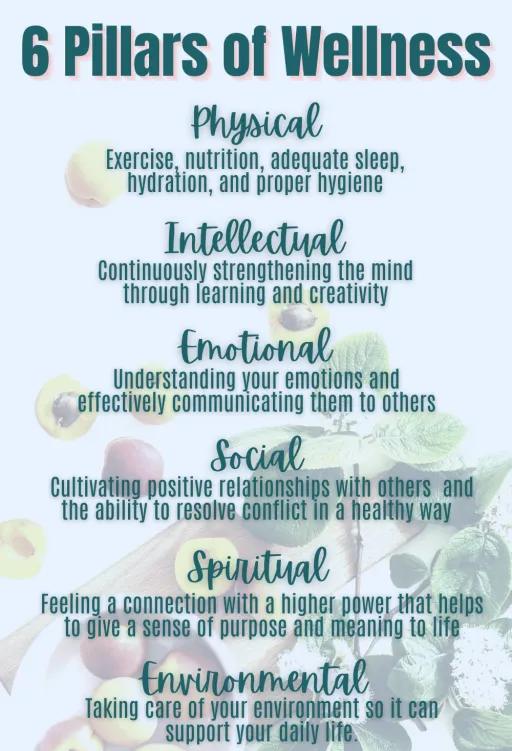In today’s fast-paced world, staying healthy can feel overwhelming. But wellness doesn’t have to be complicated. This article explores simple, science-backed strategies that can help you regain energy, improve mood, and boost overall well-being. Whether you’re restarting your health journey or looking for fresh motivation, these easy wins will guide you toward a more balanced, vibrant life—one step at a time.

Introduction
Health and wellness are lifelong journeys. Often, they involve small, consistent changes rather than drastic overhauls. Fortunately, science supports this approach. Simple, evidence-based habits can boost energy, reduce stress, and promote long-term health. This article explores the latest scientific insights and offers accessible steps anyone can take to reclaim their wellness path.
The Science Behind Wellness: Understanding the Body-Mind Connection
How Lifestyle Impacts Physical and Mental Health
Research shows that lifestyle choices affect both physical health and mental well-being. Diet, exercise, sleep, and stress management all influence hormones, immune response, and even gene expression.
For instance, a study published in The Lancet Psychiatry found that regular physical activity significantly lowers the risk of depression. Similarly, the Harvard School of Public Health highlights the role of dietary patterns in reducing chronic disease risk.
When you align your lifestyle with your body’s natural rhythms, you improve biological functions. Over time, this harmony builds a strong foundation for lasting wellness.
Neuroplasticity: How Habits Reshape the Brain
Our brains are not fixed. Through a process called neuroplasticity, neural pathways change based on behavior and thought patterns. Regular mindfulness, physical activity, and learning new skills stimulate this plasticity.
Moreover, according to a study in Nature Reviews Neuroscience, even ten minutes of daily meditation can change brain structure and improve emotional regulation. This reinforces the idea that small efforts can lead to significant, long-term brain changes.
Nutrition as Your First Line of Defense
Whole Foods vs. Processed Foods: The Evidence Is Clear
Nutrition is the cornerstone of wellness. Yet, the modern diet often lacks essential nutrients and includes an excess of processed foods. Whole foods—fruits, vegetables, lean proteins, whole grains, and healthy fats—are rich in fiber, antioxidants, and micronutrients.
In contrast, ultra-processed foods are associated with inflammation, weight gain, and cognitive decline. A landmark study in BMJ linked processed food consumption to increased mortality risk. Clearly, swapping even one processed meal a day for a whole-food option is a win.
Easy Nutritional Wins You Can Start Today
- Hydrate smartly: Replace sugary beverages with water or herbal teas.
- Add greens: Include leafy vegetables in at least one meal daily.
- Mindful snacking: Choose nuts, seeds, or fruit over chips or cookies.
These changes are simple yet impactful. Moreover, they are easy to maintain long-term, supporting your wellness journey sustainably.
Movement That Matters: Functional Fitness for Daily Life
Why Short Workouts Can Be Just As Effective
You don’t need hours in the gym. Scientific studies confirm that short, high-intensity workouts—or even frequent low-intensity movement—offer health benefits. According to the American College of Sports Medicine, 15–20 minutes of physical activity daily can reduce the risk of heart disease, diabetes, and depression.
In addition, NEAT (non-exercise activity thermogenesis) activities like walking, gardening, or cleaning burn calories and reduce sedentary time.
Incorporating Movement Into Daily Routines
- Stretch during screen breaks.
- Take the stairs whenever possible.
- Use a standing desk if your work allows.
- Go for a 10-minute walk after meals.
Even small movements add up. Over time, they enhance circulation, reduce stiffness, and boost mood.

Sleep: The Underestimated Pillar of Health
Circadian Rhythms and Sleep Hygiene
Sleep is when your body repairs and regenerates. Poor sleep quality disrupts hormone balance, cognition, and immune function. In fact, studies in Sleep Medicine Reviews show that sleep deprivation increases cortisol levels, insulin resistance, and risk of mental health disorders.
Circadian rhythms govern our sleep-wake cycles. Maintaining consistency in sleep timing reinforces these natural rhythms.
Practical Tips for Better Sleep
- Avoid screens at least one hour before bed.
- Keep your room cool and dark.
- Establish a calming pre-sleep routine.
- Limit caffeine and alcohol after mid-afternoon.
Restorative sleep enhances memory, mood, and metabolism—key components of overall wellness.
Stress Management: The Silent Game-Changer
The Physiology of Stress and Its Effects
Chronic stress triggers a cascade of physiological changes. Cortisol and adrenaline levels rise, blood pressure increases, and immune function is suppressed. Over time, this state contributes to numerous diseases.
The American Psychological Association notes that persistent stress is linked to cardiovascular disease, anxiety, and gastrointestinal issues.
Science-Backed Stress Reduction Techniques
- Mindful breathing: A 2021 meta-analysis in JAMA found breathwork reduces anxiety and improves focus.
- Progressive muscle relaxation: Helps release tension from the body.
- Nature exposure: Even 20 minutes in a green space lowers cortisol.
These tools empower you to regain calm, clarity, and control.
The Role of Social Connection in Wellness
Loneliness and Health: The Research Speaks
Human connection is essential for health. According to The National Institute on Aging, social isolation is as harmful as smoking 15 cigarettes a day. Moreover, strong relationships reduce inflammation and support heart health.
Oxytocin—the “bonding hormone”—is released during positive interactions. This hormone lowers stress and improves emotional resilience.
Building and Maintaining Meaningful Relationships
- Reach out regularly to friends and family.
- Join a club or activity group.
- Volunteer in your community.
Small acts of connection can significantly impact your health and well-being.
Gut Health: The Hidden Hero of Wellness
Understanding the Gut-Brain Axis
The gut and brain communicate through a complex network of nerves, hormones, and microbes. This connection, known as the gut-brain axis, plays a key role in mood, immunity, and digestion.
Scientific reviews in Frontiers in Psychiatry suggest that gut dysbiosis is linked to anxiety, depression, and even neurodegenerative disorders.
Easy Wins for a Healthier Gut
- Eat more fermented foods like yogurt, kefir, kimchi, and sauerkraut.
- Increase fiber intake through fruits, vegetables, and legumes.
- Limit antibiotic overuse which disrupts microbiome balance.
When your gut thrives, your body and mind benefit.
Technology and Wellness: Striking the Right Balance
Digital Detox: Why It Matters
Technology improves life in many ways, but excessive use—especially of social media—can impair sleep, mood, and self-esteem. The Journal of Behavioral Addictions confirms that screen time overuse is associated with higher rates of anxiety and disrupted circadian rhythms.
A digital detox, even for a few hours daily, restores balance and mental clarity.
Ways to Create Healthy Digital Habits
- Use screen timers or tracking apps.
- Designate tech-free zones in your home.
- Turn off notifications during focused or restful periods.
With mindful tech use, you regain time for meaningful activities.
Mental Fitness: Sharpening the Mind as You Age
The Power of Cognitive Engagement
Just like muscles, your brain needs exercise. Learning new skills, reading, or solving puzzles keeps cognitive function sharp. Studies in Psychological Science show that mental challenges increase neural connections and slow age-related decline.
Neurogenesis—the creation of new brain cells—is possible even in adulthood when the brain is regularly stimulated.
Daily Mental Fitness Practices
- Learn a new language or instrument.
- Practice memory games or crosswords.
- Journal your thoughts to improve emotional clarity.
These habits enhance focus, memory, and creativity.
Building a Sustainable Wellness Routine
The Power of Habit Formation
Wellness doesn’t require perfection. Rather, it thrives on consistency. According to behavior change research, it takes an average of 66 days to form a new habit. Starting small and building gradually increases your chances of long-term success.
Furthermore, using cues and rewards makes habits stick. For example, drinking water after brushing your teeth can become second nature with repetition.
Creating a Personalized Wellness Blueprint
Everyone’s path is unique. Customize your routine by assessing your current lifestyle, identifying obstacles, and setting realistic goals. Whether it’s improving sleep or walking more, choose one change at a time.
Track progress. Celebrate wins. Adjust as needed.
“The journey of a thousand miles begins with a single step.”
Lao Tzu
Conclusion: Small Changes, Big Impact
Reigniting your wellness journey doesn’t require drastic changes. Instead, it involves small, science-backed steps that are easy to implement and maintain. From eating whole foods and moving more to sleeping better and connecting deeply, these “easy wins” build momentum.
When applied consistently, they empower you to feel better, think clearer, and live fully. Begin with one change today—and let that spark ignite your entire journey.

